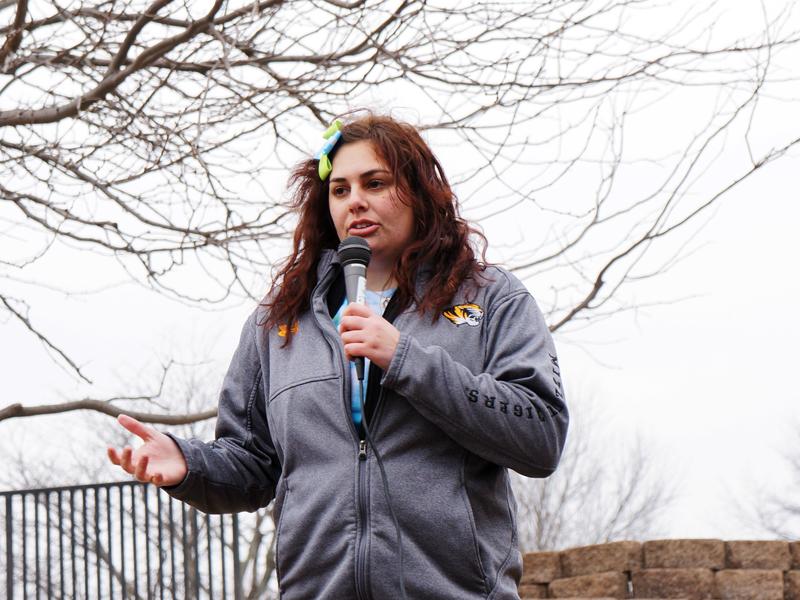Sophomore Emmy Boyd hosted Columbia’s first National Eating Disorders Association Walk on Saturday at Columbia Cosmopolitan Recreation Area to raise awareness in the community about eating disorders.
Participants walked a mile together to reflect on their eating disorder histories and to share support for one another.
More than 100 people attended, and the event raised more than $6,600. All profits were donated to the National Eating Disorders Association to support its mission. NEDA is a non-profit organization dedicated to helping those affected by eating disorders by providing resources for prevention, cures and quality care.
Boyd said she was motivated to bring a NEDA Walk to Columbia to raise awareness about eating disorders within the community. She found the walk to be helpful when she first participated in Florida about one year into her recovery from an eating disorder. Emmy Boyd is currently in her third year of recovery.
“When I came to Columbia I realized not a lot of people talk about eating disorders,” Emmy Boyd said. “It’s not something that’s normally discussed and not a whole lot of people know the resources. I wanted to get the word out.”
Castlewood Treatment Center for Eating Disorders in St. Louis sponsored the walk and donated $1,000 to NEDA.
Melissa Franolich, a current client of Castlewood, and Tami Sasson, a former client, came to the event to represent the treatment center. They explained that eating disorders are the number one killer within diseases, even above breast cancer, but insurance agencies do not provide adequate coverage. Sasson and Franolich said insurance companies are not providing enough funds for those trying to cure eating disorders because the companies believe it is not a mental illness and can be easily cured by just eating something.
Most people do not successfully finish recovery on their first try, Sasson said. People with eating disorders tend to be perfectionists, so going through multiple lapses of recovery can be both normal and disheartening. The healing process can take as long as seven years, if not longer.
“Recovery is a long process, pretty much a lifelong process, but they can get through it,” Boyd said.
Eating disorders are heavily stereotyped to mainly affect women, but the pressure to be thin affects both genders. [According to the NEDA website](http://www.nationaleatingdisorders.org/get-facts-eating-disorders), 20 million women and 10 million men in the U.S. suffer from a clinically significant eating disorder at some point in their life. Many cases also go unreported, according to the website.
The walk had a broad spectrum of participants, including those struggling with the disorder and those who were supporting their loved ones.
“I also went through an eating disorder, and I’m in recovery, so I’m really into the program and helping people and staying connected with everything,” MU freshman Erika Enlow said.
Emmy Boyd’s father, Stuart Boyd, flew in from Florida to continue to provide support for his daughter.
“The main thing is to get involved with a program of some sort that can give you advice because it’s something the average person doesn’t know how to deal with,” Stuart Boyd said. “You’re trying to help, trying to be a parent, guide them, and yet you’re watching your child struggle, but there’s often nothing you can do but provide support.”
Emmy Boyd said there is always help for those with an eating disorder.
“A lot of times, in probably the darkest times of my eating disorder, I felt like there was no help, there was nothing anyone could do,” Emmy Boyd said. “There is help. People need to remember there is help, and they can get through it.”
Students currently enrolled at MU are able to receive free and confidential counseling at the [Counseling Center]( http://counseling.missouri.edu/) and the [Women’s Center]( http://womenscenter.missouri.edu/).








